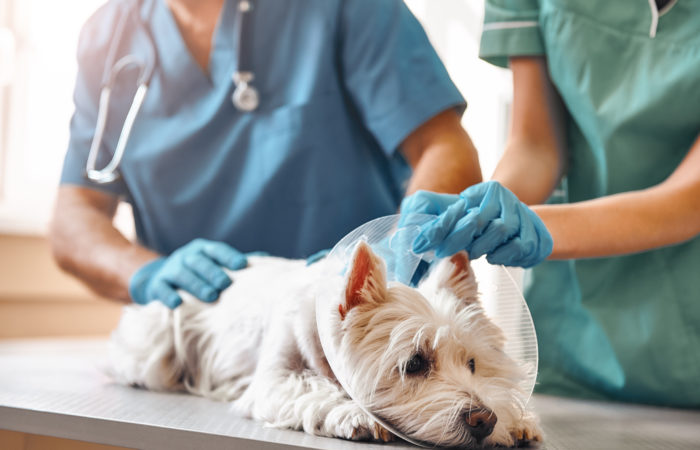Finding your way through small animal clinical practice (2023)
This course has been carefully created to provide a completely holistic approach to CPD for veterinary surgeons in small animal clinical practice. This course is aimed at all levels of veterinary surgeon, but is extremely well suited to new graduates or those returning to practice after some time away. The course is underpinned by a real-time discussion forum where you can ask any questions as you work your way through the lessons. There are also live Q&A sessions where you can chat with our speakers and other course delegates about the content or those challenging cases you may be seeing in practice that you might need some help with.
The course is run by our very own Scott Kilpatrick (EBVS and RCVS Recognised Specialist in Small Animal Internal Medicine) and Liz Bode (EBVS and RCVS Recognised Specialist in Cardiology). Scott and Liz are joined by a variety of amazing specialist speakers from across the veterinary profession, talking on topics including: internal medicine, cardiology, anaesthesia & analgesia, dermatology, soft tissue surgery, ECC, ophthalmology, neurology and clinical wellness.
The course runs over a seventeen week period and takes around 24 hours to complete.
Access to this course is for 12 months from the start of the course going live on our website. If you sign up to the course after the live sessions have run, you will still be able to access the recordings from the live sessions. The discussion forum will be monitored for the course duration only.
Sponsored by 
Course Content
- Review the logical approach to the patient with PUPD.
- Understand the best ways to get the most out of your diagnostic tests… even when finances are limited, and you lack confidence using the ultrasound!
- Consider the best treatment options for some of the most commonly diagnosed conditions causing PUPD
- Review the common reasons for coughing in dogs.
- Understand how to differentiate between cardiac and non-cardiac cause of coughing.
- What are the treatment options… more than just furosemide and steroids!
- Adopt a logical approach to the pruritic patient.
- What do I need to do diagnostically… From scrapes to cytology.
- Review the current treatments that help to reduce the itch.
- Feel confident with common sedation and anaesthetic protocols.
- Demystify the multiparameter monitoring… what do you really need to monitor?
- Learn how to troubleshoot common anaesthetic complications and challenges.
- Assess and optimise radiographic quality
- Develop a system for looking at abdominal radiographs
- Recognise obstructive gastrointestinal patterns on radiographs
- Develop a logical approach to thoracic radiograph interpretation.
- Identify cardiomegaly and specific chamber enlargement – when should you pay attention to increased sternal contact?
- Recognise various lung patterns and associated differential diagnosis.
- Be able to discuss, with confidence, the basic nutritional needs of cats and dogs
- Understand what can and cannot be learned from a pet food label or claim
- The importance of wellness nutrition in cats and dogs
- How to surgically approach the abdomen
- What are the common indications for an abdominal exploration?
- Understand how to deal with common surgical complications.
- Ask any questions relating to the sessions.
- Your chance to discuss any cases you are struggling with.
- We will bring along a few interesting cases too!
- Understand the pathophysiology of haemostasis.
- Review the diagnosis of the most common haemostatic disorders.
- Treatment… what transfusion options do we have?
- Getting the most out of the neurological exam.
- Review your approach to the seizuring patient.
- What investigations are actually useful in the neurological patient?
- Review the common causes of collapse… don’t panic!
- Feel comfortable with the emergency diagnostic approach.
- Treatment… when you don’t always know what you are treating.
- The ophthalmic exam… what are you looking at?
- Spotting the most common ophthalmic conditions in practice.
- Treatment…more than just a couple of drops.
- Feel comfortable treating the patient with acute gastrointestinal signs.
- Chronic problems… How to investigate?
- Treatment… from steroids to faecal transplantation.
- Understand the key features and benefits of a variety of clinical diets
- Develop a greater understanding of when a clinical diet would be an appropriate choice for their patients
- Gain the confidence to recommend diets more effectively in practice
- Whole host of mindset and self-care techniques to help you go from feeling like ‘spinning plates’ to keeping your clinical cool.
- Understanding our own neurophysiology to breathing techniques, gratitude, and delegation.
- Tangible tips that you can consider adding to your own toolkit as a clinician.
- Ask any questions relating to the sessions.
- Your chance to discuss any cases you are struggling with.
- We will bring along a few interesting cases too!
Meet the speakers
show
already purchased this course? login to your vtx account for access
login












